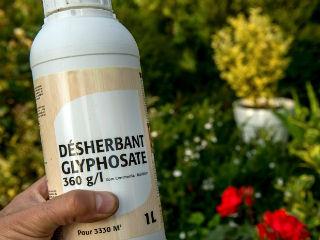US Judge says scientists have ”not shown” link between glyphosate and cancer
A key ruling by a US judge on glyphosate could have significant implications on the status of the herbicide at EU level, according to a parliamentary source

The ruling states: “The required warning for glyphosate does not appear to be factually accurate and uncontroversial because it conveys the message that glyphosate’s carcinogenicity is an undisputed fact, when almost all other regulators have concluded that there is insufficient evidence that it causes cancer.
by
Martin Banks
This comes after a federal judge on Monday halted California’s plan to require Monsanto to place warning labels on its Roundup products, saying scientists had not shown a clear connection between glyphosate and cancer.
U.S. District Judge William Shubb sided with the St. Louis-based chemical giant, ruling that warning labels, which would have been required as of July, could “confuse and mislead” customers.
The ruling states: “The required warning for glyphosate does not appear to be factually accurate and uncontroversial because it conveys the message that glyphosate’s carcinogenicity is an undisputed fact, when almost all other regulators have concluded that there is insufficient evidence that it causes cancer.
”In November, glyphosate was granted a fresh licence for continued use for another five years across the EU. But it still remains a highly emotive and contentious issue and could also have real post-Brexit implications for the UK.
Before its renewal, EU countries had come under intense pressure from campaigners to ban glyphosate, which is marketed for garden use under the brand name Round Up,despite a vast weight of scientific opinion concluding it is safe. As well as two EU agencies, the UN/World Health Organisation backs its continued use as well as national authorities in non-EU countries including Canada, Japan, Australia and New Zealand.
Several international agencies have likewise concluded that there is insufficient evidence that glyphosate causes cancer, including the European Commission’s Health and Consumer Protection Directorate-General and Germany’s lead consumer health and safety regulator.
On Tuesday, a senior European parliament source told this website, “The timing of an end to glyphosate use has been highly controversial in Europe amid a heated debate over whether the chemical causes cancer. “The US decision this week has implications for the ongoing discussions on the status of glyphosate at an EU level given that a final decision on this is still pending and controversial.”
This is a reference to Germany’s draft coalition deal which includes a goal of ending the use of glyphosate within the country (although no time frame is given).
The draft deal to establish a new German coalition government states: “We will with a systematic minimalization strategy significantly restrict use of plant protection chemicals containing glyphosate, with the goal of fundamentally ending usage as fast as possible.”
According to the US judgement, seen by this website, “a reasonable consumer would not understand that a substance is ‘known to cause cancer’ where only one health organization had found that the substance in question causes cancer and virtually all other government agencies and health organizations that have reviewed studies on the chemical had found there was no evidence that it caused cancer. Under these facts, the message that glyphosate is known to cause cancer is misleading at best.”
The ruling continues: “On the evidence before the court, the required warning for glyphosate does not appear to be factually accurate and uncontroversial because it conveys the message that glyphosate’s carcinogenicity is an undisputed fact, when almost all other regulators have concluded that there is insufficient evidence that glyphosate causes cancer.”
It says, “It is inherently misleading for a warning to state that a chemical is known to the state of California to cause cancer based on the finding of one organization when apparently all other regulatory and governmental bodies have found the opposite, including the EPA, which is one of the bodies California law expressly relies on in determining whether a chemical causes cancer.
Given the heavy weight of evidence in the record that glyphosate is not in fact known to cause cancer, the required warning is factually inaccurate and controversial.” “Where California seeks to compel businesses to provide cancer warnings, the warnings must be factually accurate and not misleading. As applied to glyphosate, the required warnings are false and misleading.”
Senior UK MEP Anthea McIntyre condemned “scaremongering and indecision” over glyphosate while the Conservative delegation leader Ashley Fox points out that glyphosate has been approved for use by both the European Food Safety Authority and the European Chemical Agency, “bodies set up and funded by the EU precisely to provide this kind of expert advice.”
It is estimated that banning glyphosate would cut UK production of winter wheat and winter barley by 12% and oil seed rape by 10%, costing the farming industry over €950m a year. No biological alternatives are expected to be commercially available in the near future.
The UK supported the Commission's original proposal to renew glyphosate's licence for 15 years. An EU glyphosate ban would still affect British farmers after Brexit as the bloc would almost certainly block the import of products on which the weed killer had been used. UK Environment Secretary Michael Gove said last week that following Brexit, policy decisions, including on glyphosate, will be aligned with scientific evidence. Gove stated;
“We recognise that glyphosate is an indispensable tool in min- and no-till cultivation. As long as the science justifies its continued use, then I will argue for its continued use.”



 By: N. Peter Kramer
By: N. Peter Kramer

